
The WTE Group drives innovation
for sustainable water management.

With energy costs increasing, directives becoming stricter and the population growing in size, we are always looking for new ways to be more efficient and proactive – and give our customers new ways to do so as well. This is why we develop cutting-edge innovative and application-oriented solutions that help to protect water and make optimal use of the diverse potential of sustainable water management, for example for resource and energy recovery.
The innovative solutions of the WTE Group benefit our customers and the environment, which we want to preserve.
Dr. Ekaterina Vasyukova, WTE Wassertechnik GmbH, Head of Research and Development
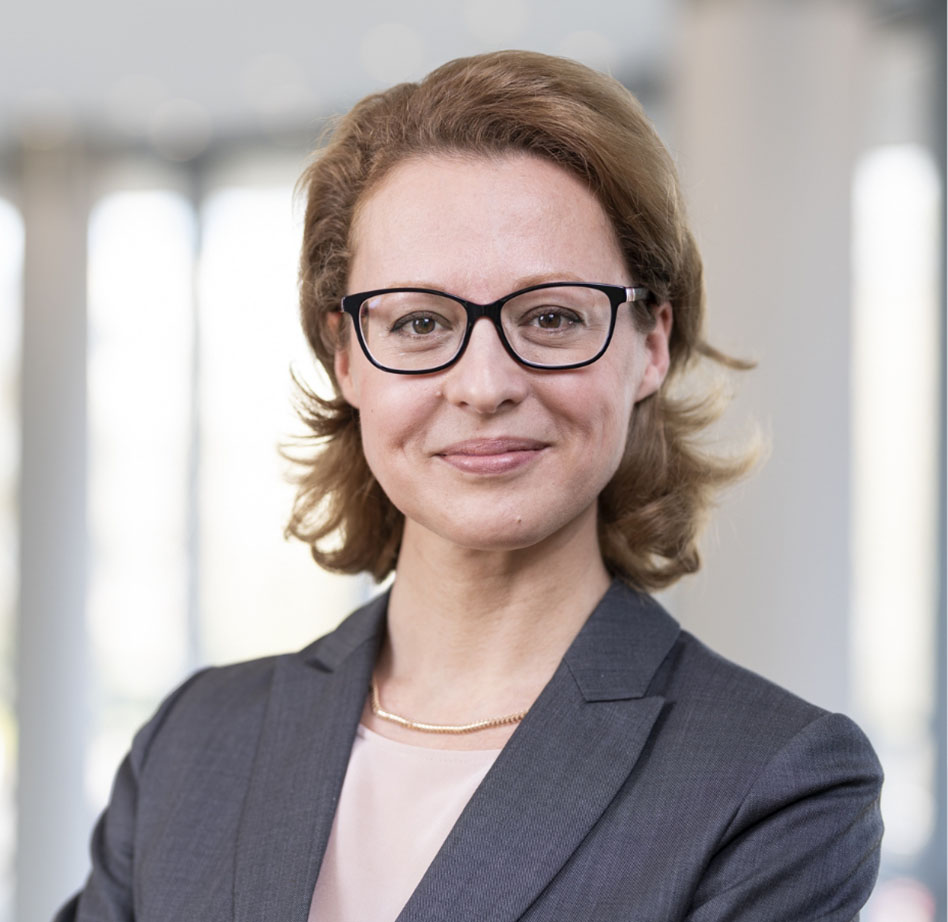
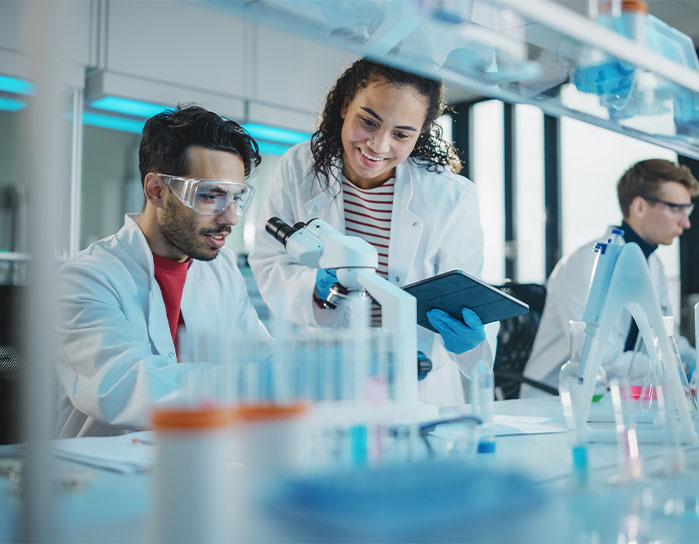
Our developments relating to wastewater treatment, water treatment and energy recovery are tailored to suit the needs of our customers – for cost-effective and optimal plant operation with real benefits.
The key goals of our developments are:
WTE is one of Europe’s leading water management companies. We therefore consider it our responsibility to continuously improve the methods used to treat water – and also to develop new ones, such as methods that enable environmentally friendly energy supply and the recovery of valuable raw materials.
We are currently focusing on energy and nutrient recovery in wastewater treatment plants as well as the reduction of nitrogen and nitrate in wastewater and drinking water.
Organic waste and components in wastewater form a practically inexhaustible source of renewable energy – but up until now only roughly one quarter of its energy potential has been used. One groundbreaking option for directly increasing the energy yield from wastewater while at the same time covering the high energy consumption of wastewater treatment plants is to use microbial fuel cells. These cells use the metabolism of bacteria to generate bioelectricity, while cleaning part of the wastewater.
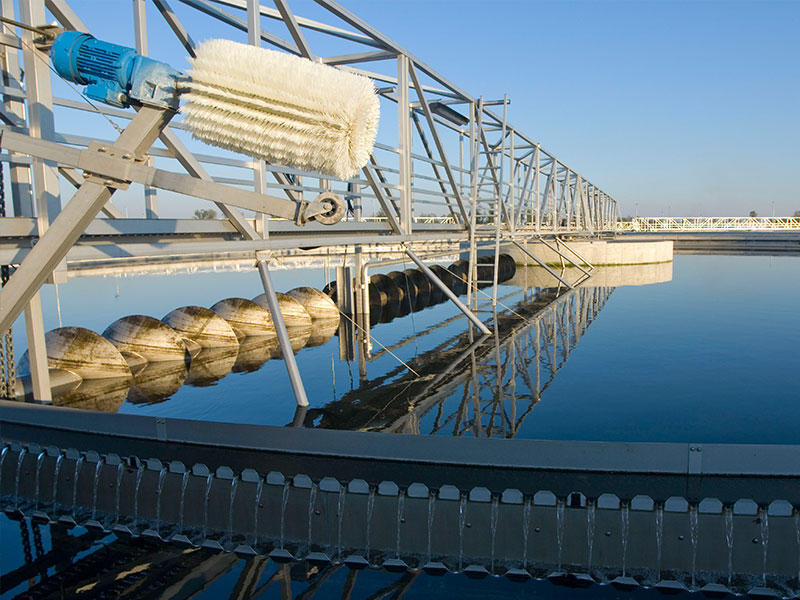
The procedure was trialled in 2018 to 2020 in the joint AGaBZ project, which was funded by the German Federal Ministry of Education and Research (for more information, see the project data sheet AGaBZ – automated microbial fuel cells with extended gas utilisation in municipal wastewater treatment plants). We also tested the procedure at lab scale, and then cubic metre scale, in collaboration with the Chair of Urban Water Management and Environmental Technology at Ruhr University Bochum and AWITE GmbH, a producer of gas analysis systems. At the Hecklingen wastewater treatment plant in Saxony-Anhalt, it was possible to test the reliability of the technology under real-life conditions. The plant is a pilot project with one of the world’s largest single-chamber MFCs. The valuable insights from this project will form the basis for enhancing the procedure and for the future large-scale implementation.
Advantages:
Purification of wastewater, recovery of energy and reusable materials: modern water management requires a combination of groundbreaking procedures.
Dr.-Ing. Leon Steuernagel, WTE Wassertechnik GmbH, Head of Business Division Tendering
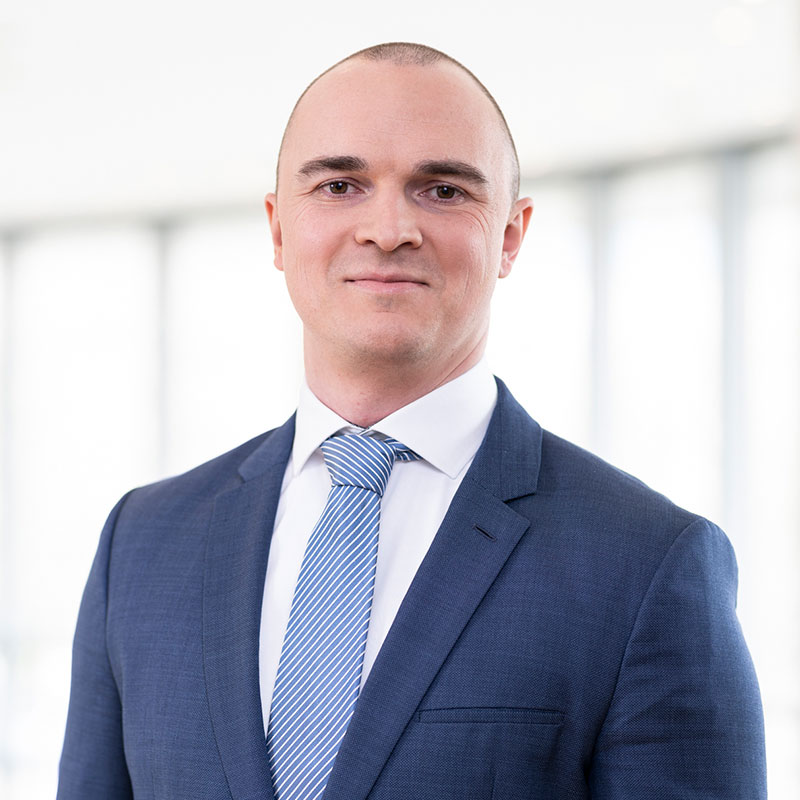
The increased leaching of nitrates has a significant impact on bodies of groundwater – and therefore also on drinking water. Germany’s Drinking Water Ordinance therefore specifies a maximum limit of 50 mg/l for the concentration of nitrates in drinking water.
To comply with this limit, the operators of waterworks have various options available to them, including abandoning existing well fields or developing increasingly deeper groundwater reservoirs. Alternatively, waterworks operators can also invest in innovative treatment techniques. WTE Wassertechnik has developed various suitable methods over the past seven years and implemented and operated them in semitechnical plants with scientific support:
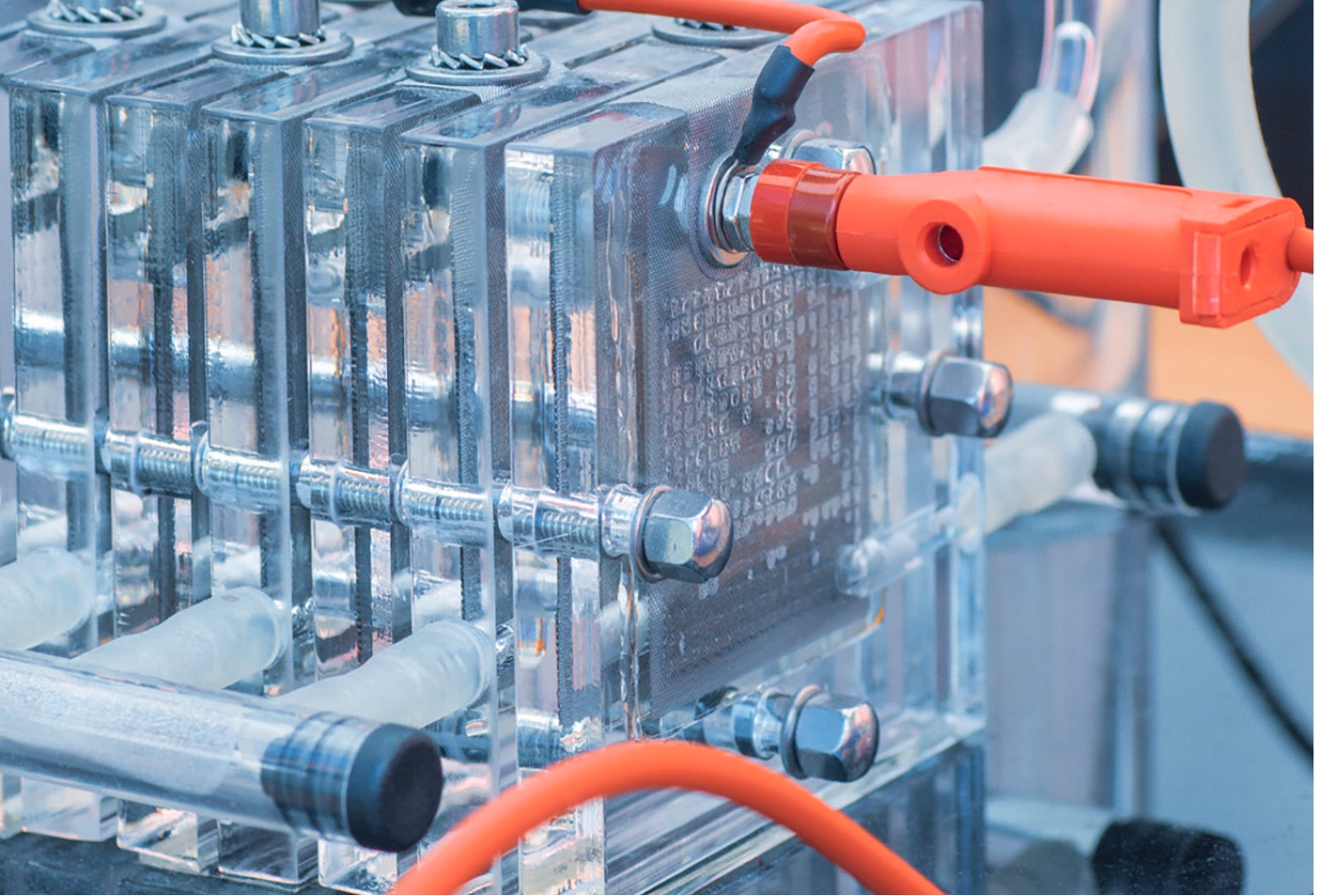
ANELIS technology is a biofilm procedure performed on selectively active substrates, with nitrification and denitrification carried out in parallel inside a reactor. This allows the required reaction volume to be significantly reduced compared with the activated sludge process. The procedure was developed in collaboration with the Hamburg-Harburg University of Technology.
Advantages:
The patent-pending NELIS technology was compiled by WTE on the basis of insight gained from experience with ANELIS. It is a biofilm procedure for fully autotrophic denitrification on special substrates. The development was supported by scientific supervision in collaboration with Duisburg-Essen University, Ruhr University Bochum and the University of Washington (Seattle) as part of a doctorate.
Advantages:
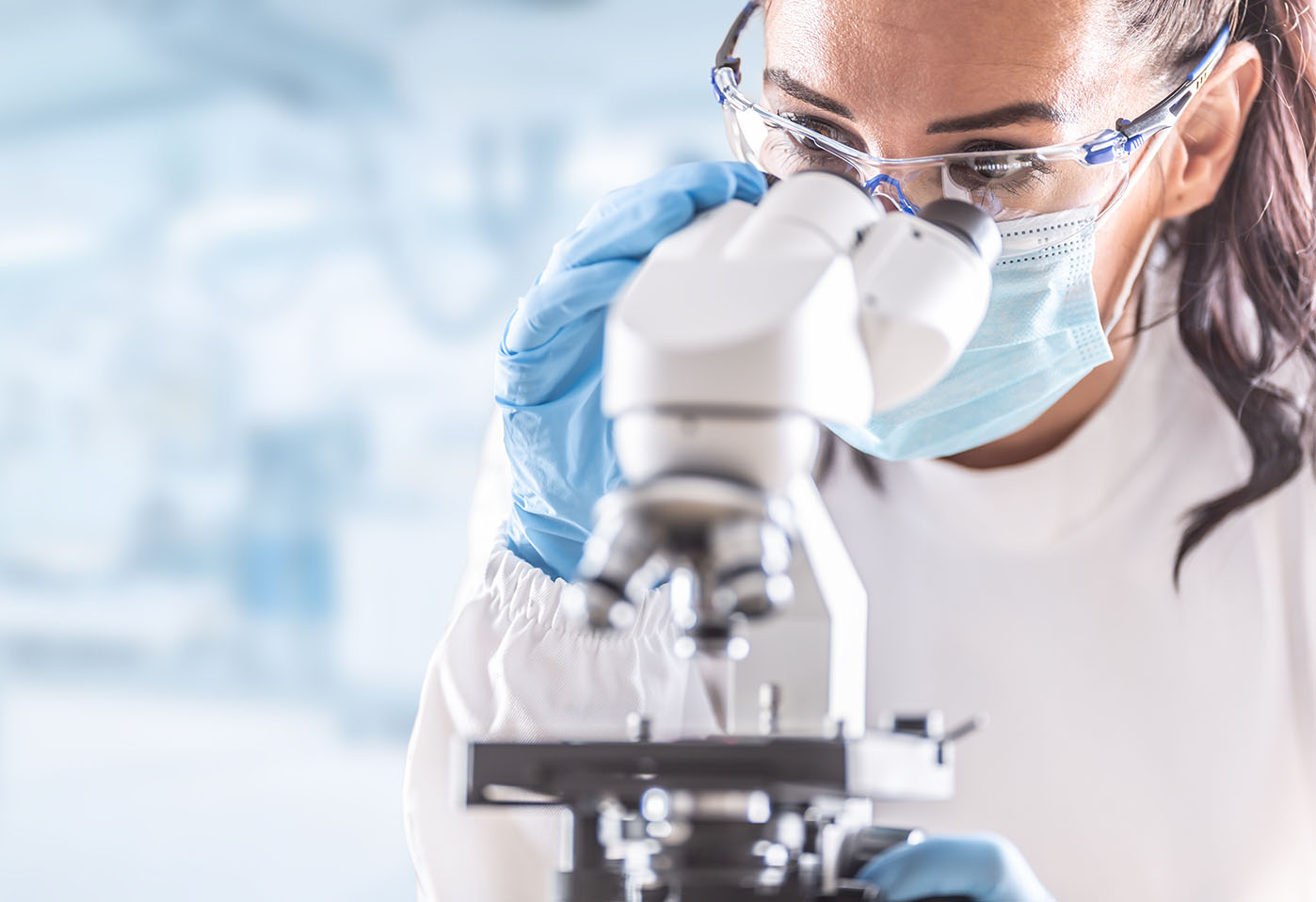
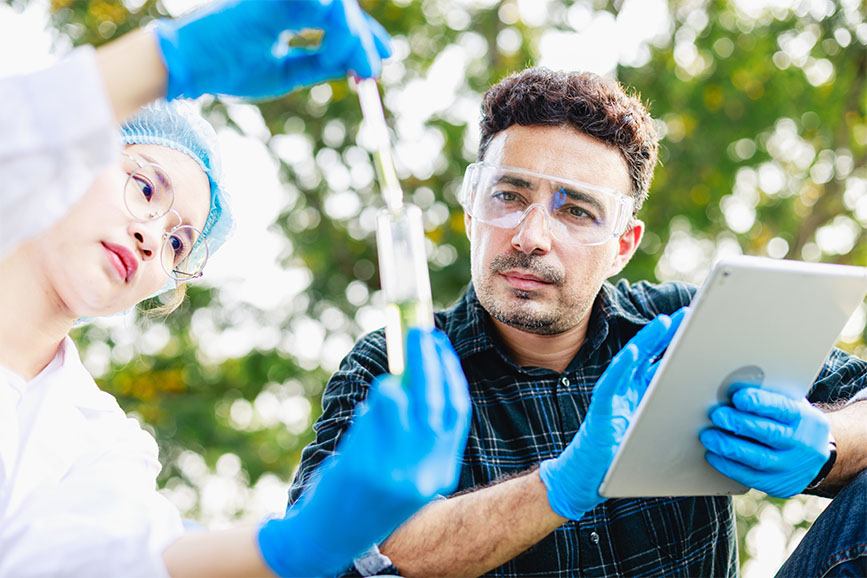
This patent-pending technology is in turn based on insight gained from both the above-mentioned projects and is also an in-house development of WTE Wassertechnik. The aim of NERO is efficient biological, heterotrophic denitrification with a biofiltration plant of the retentate from a reverse osmosis plant. Very special requirements apply for treatment when working with retentates, as there are very high concentrations of nitrate, hardness minerals and other dissolved substances.
The pilot testing was completed successfully in 2021 and 2022 in collaboration with EVN Wasser GmbH. For this, a semitechnical test plant for nitrogen removal was set up and operated successfully in the Obersiebenbrunn drinking water plant (Austria).
Advantages:
Since April 2025, the NERO process has been used under real operating conditions at the Groß-Umstadt drinking water plant as part of the DVGW-funded KonBioN research project. The aim is to demonstrate the sustainable, biological treatment of nitrate-contaminated concentrate from reverse osmosis – a key issue for a future-proof drinking water supply.
KonBioN stands for interdisciplinary cooperation: Groß-Umstadt, WTE Wassertechnik GmbH, TU Darmstadt and the IWW Institute for Water Research are working together to scientifically investigate and further develop the potential of the technology under various load scenarios.
At the official project launch, the social significance of the project became particularly clear:
‘This project is a promise to our citizens – clean water today and tomorrow,’ emphasised Mayor René Kirch.
KonBioN is therefore much more than a technical project – it is a strong signal in favour of innovation, sustainability and the responsible use of one of the most valuable resources of our time: clean water.
With our research and development of innovative water management procedures, we are pursuing the WTE Group’s objective of sustainability.
As a groundbreaking company group, the WTE Group is constantly working to optimise the supply of drinking water and treatment of wastewater. To do this, we develop procedures and technologies, some of them entirely new, setting new standards in global water management.
Innovations that we have patented include the following:
| Titel | Patent number | Link |
|---|---|---|
Procedure for biological purification of water with nitrate content | WO2021104711A1 | Find out more |
Procedure and reactor for biological nitrogen elimination with autotrophic ammonium oxidation and subsequent denitrification | WO2018019968A1 | Find out more |
Procedure and device for measuring sludge levels | DE102010031857 | Find out more |
Procedure for reducing surface scum in the wastewater treatment plant | DE102010035751 | Find out more |
Procedure for influencing the sludge index volume with the aim of avoiding surface scum in wastewater treatment plants | EP1445239 | Find out more |
Wastewater treatment plant with improved activated sludge removal | EP1854524 | Find out more |
For further information, please contact our specialist R&D department.
As a future-oriented company, we approach the challenges relating to water as a raw material and a liveable future with interdisciplinary dialogue. We therefore collaborate with leading research institutes.
The WTE Group works with the following leading research organisations, among others:
WTE Wassertechnik regularly assigns topics to students for final papers and project work and supports them consistently throughout their work. Please simply send your speculative application by email to our HR department marked ‘R&D’: innovation@wte.de

The WTE Group shares its knowledge through publications and presentations – for the joint development of a holistic, sustainable water management system. The following overview of selected publications, published in renowned specialist journals and conference proceedings, will give you a deeper insight into the diversity of our R&D projects:
| Name des Projekts | Details zur Publikation | Link |
|---|---|---|
| On-site performance evaluation of a 1,000-litre microbial fuel cell system using submergible multi-electrode modules with air-cathodes for sustainable municipal wastewater treatment and electricity generation | J. Heinrichmeier, T. Littfinski, E. Vasyukova, L. Steuernagel, M. Wichern Water Science & Technology, 87(8), 2023, 1969-1981 | More information |
| Application of pyritic sludge with an anaerobic granule consortium for nitrate removal in low carbon systems | B. Pelivano, S. Bryson, K. A. Hunt, M. Denecke, D. A. Stahl, M. Winkler Water Research, 209, 2022, 117933 | More information |
| A comparative study of different electrochemical methods to determine cell internal parameters of microbial fuel cells | T. Littfinski, E. Nettmann, T. Gehring, S. Krimmler, J. Heinrichmeier, E. Murnleitner, M. Lübken, D. Pant, M. Wichern Journal of Power Sources, 494, 2021, 229707 | More information |
| Design of a 1,000L pilot-scale airlift bioreactor for nitrification with application of a three-phase hydrodynamic mathematical model and prediction of a low liquid circulation velocity | B. Pelivanoski, B. Detmann, K. Ooms, M. Winkler, E. Vasyukova, M. Denecke Chemical Engineering Research and Design, 153, 2020, 257-262 | More information |
| Effect of oxidation with coagulation and ceramic microfiltration pre-treatment on reverse osmosis for desalination of recycled wastewater. | D.T. Myat, F. Roddick, P. Puspita, L. Skillman, J. Charrois, I. Kristiana, W. Uhl, E. Vasyukova, G. Roeszler, A. Chan, B. Zhu, S. Muthukumaran, S. Gray, M. Duke Desalination, 431, 2018, 106-118 | More information |
| The practical influence of rapid mixing on coagulation in a full-scale water treatment plant | D. Allerdings, G. Förster, E. Vasyukova, W. Uhl Water Science & Technology, 71(4), 2015, 566-71 | More information |
| Process development for treatment of highly polluted groundwater including NOM and arsenic removal | B. Pelivanoski, K. Pirke Water Practice & Technology, 9(3), 2014, 409-416 | More information |
| Novel method for sludge blanket measurements | J. Schewerda, G. Förster, J. Heinrichmeier Water Science & Technology, 69(4), 2014, 775-82 | More information |
Phone: +49 201 8968 500
Email: innovation@wte.de